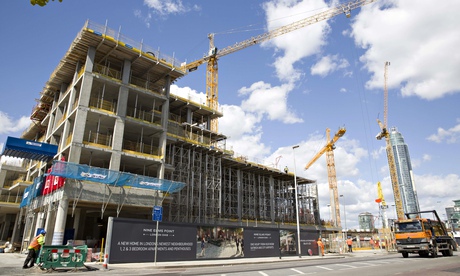
A government that has weathered economic storms by imposing austerity feels sure that it has at long last steered the good ship Britain into calmer waters. It expects to be rewarded at the polls, too, but then one nasty rock of a statistic pierces through the hull, sinking the administration and all of its confident plans.
The year is not 2015 but 1970, and the prime minister not David Cameron but Harold Wilson. As for the killer number, it’s not the GDP figure, which on Tuesday revealed that the pace of the recovery had suddenly halved, but a spike in the May trade deficit, which Wilson sought to dismiss as swelled by “a couple of jumbo jets”. He might well have been right, too. The trade figures were later revised, with a surplus recorded for the first half of that year, and it is possible that Tuesday’s provisional output numbers could be revised upwards as well. The first guess at national income always relies more on factories and building sites, where the mood has been less content than in the service sector. It is certainly too early to conclude that the recovery has been snuffed out.
Mr Cameron could be vulnerable, however, if – by ploughing on with his promised upbeat pitch – he lapsed into Wilsonian complacency. Most of the time, most voters pay economic statistics no heed. When an odd nugget of news penetrates the consciousness that’s usually because it encapsulates some wider reality. In 1970, irrespective of one month’s imports and exports, it was pretty plain that Wilson’s talk about the “white heat” of technology had not transformed industry: Britain still struggled to pay its way in the world. In 2015, irrespective of one quarter’s precise GDP, it’s clear that the bounceback still lacks the spring that should be expected after an economy has hit the floor with such force. Downturns of the past have been followed by a burst of fast catch-up growth, but – while output remains well over 10% down on where it would have been on pre-crisis trends – the economy was moving at decidedly ordinary speed, even before Tuesday’s dismal news.
A deft opposition, which Ed Miliband’s Labour party has not always been, would spend the remaining eight days of the campaign remorselessly reminding the voters of the disjunction between the chancellor’s budget-time boasts about running the speediest major economy on the planet and the sudden slowdown. It is an attack with promise, because it plays on pre-existing doubts about the statistics, which run as deep as they do because ordinary pay packets shrank for years after growth resumed. Labour should certainly try. Success, however, is not guaranteed because – and here’s one difference from 1970 – the coalition has played a brilliant blame game, pointing the finger back to Gordon Brown and his deficit whenever the hardship that played out under its watch is raised. The Wilson government was never able to finger Reggie Maudling, the previous Tory at the Treasury, who made a reckless “dash for growth”, for all of its woes in quite the same way.
Slow growth threatens to sharpen the already-nasty arithmetic of the next few years, which, as the Institute for Fiscal Studies warned on Tuesday, the Conservatives seem intent on solving by clobbering the poor. But whichever party prevails in the political game of the next few days could find disappointing growth is the most pressing problem it faces over the next several years. That, after all, has now been the clear and present danger in Britain’s truly dreadful productivity figures for years on end. Macroeconomic imbalances, ageing demographics and – some say – exhaustion of the more obvious opportunities that information technology affords may all conspire to apply the brakes.
In the hunt for a countervailing accelerator, the first task is to throw off George Osborne’s extreme austerity, but in looking towards more distant horizons, the Liberal Democrat emphasis on science could be just as important, as could Labour’s new interest in breaking open markets that are gripped by closed cartels. Mr Miliband’s sketchy but interesting manifesto proposals to overhaul City takeover rules to promote long-term investment could also help pick up pace down the road. Mr Osborne charges his predecessors with crashing a car that was hit by a juggernaut of a global crisis. It is now for him to explain why he stalled it.

